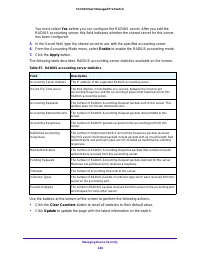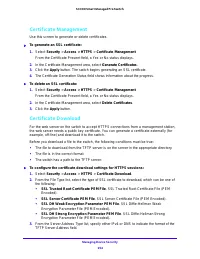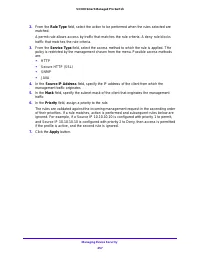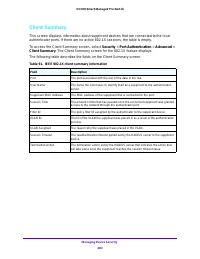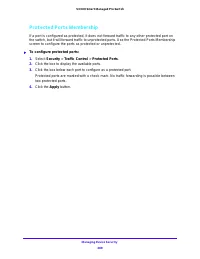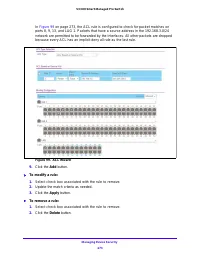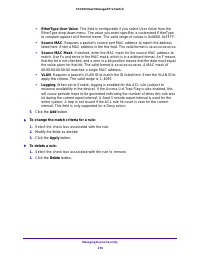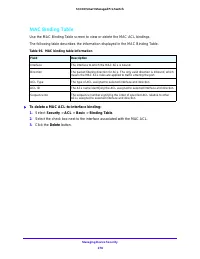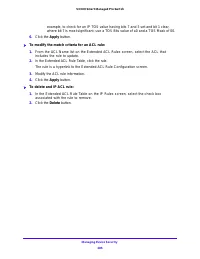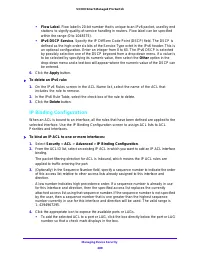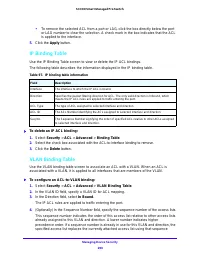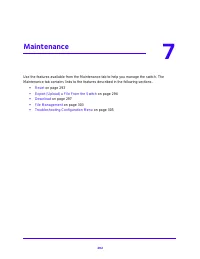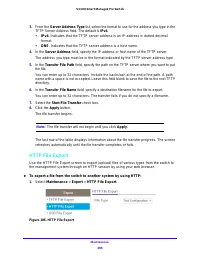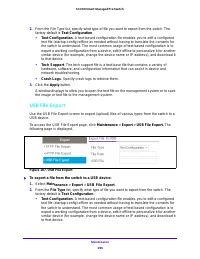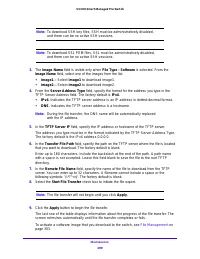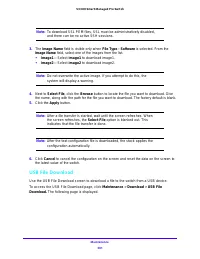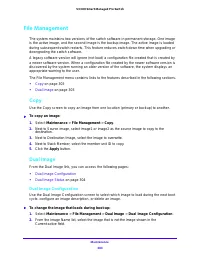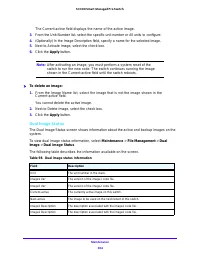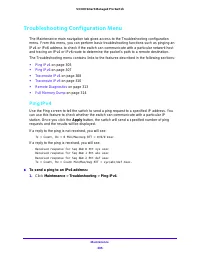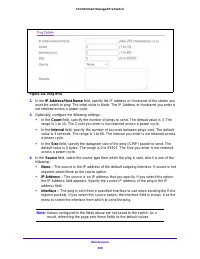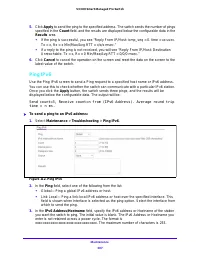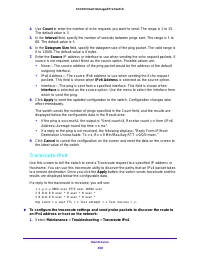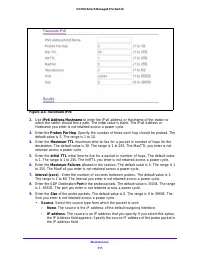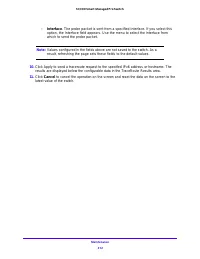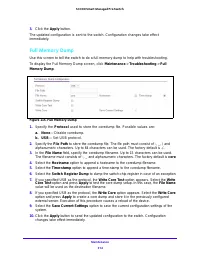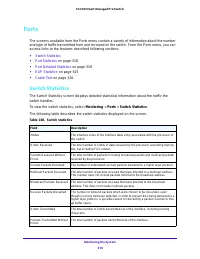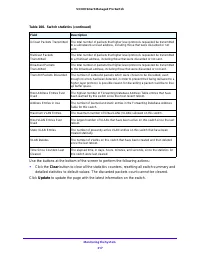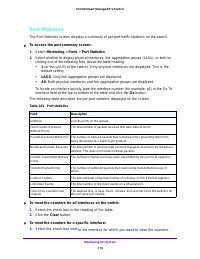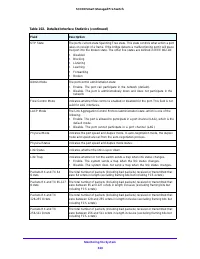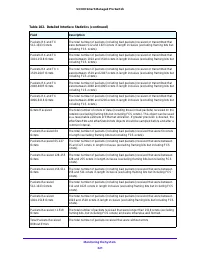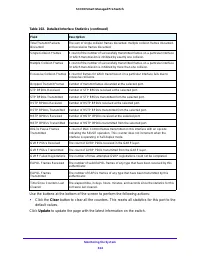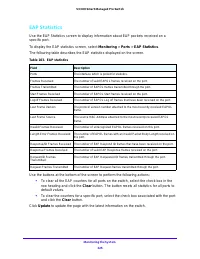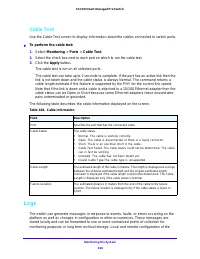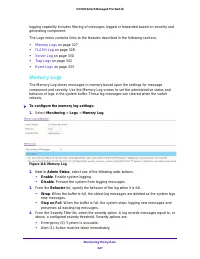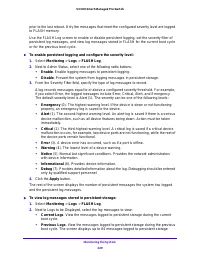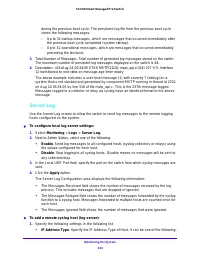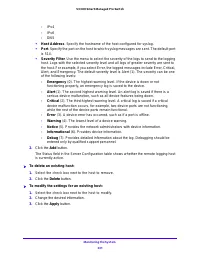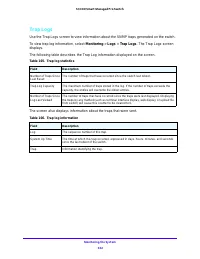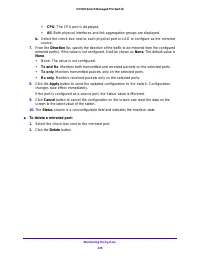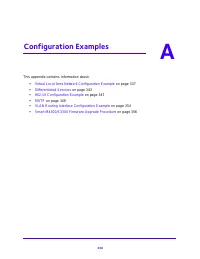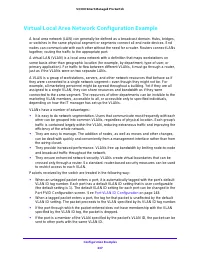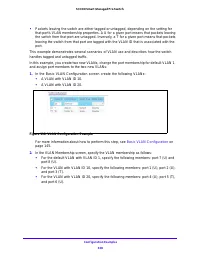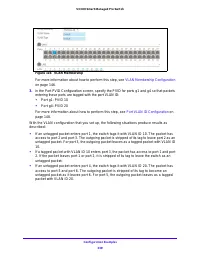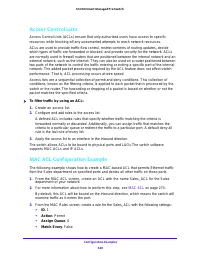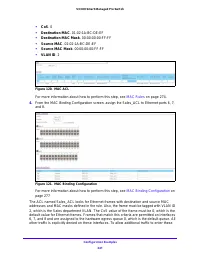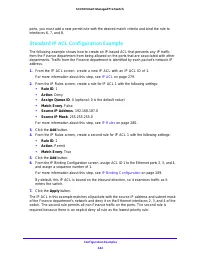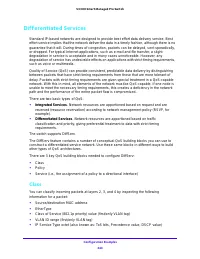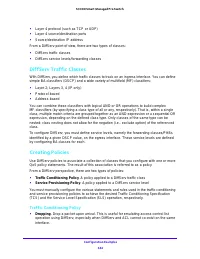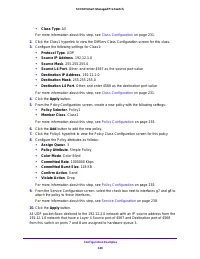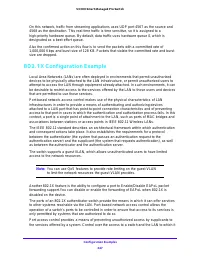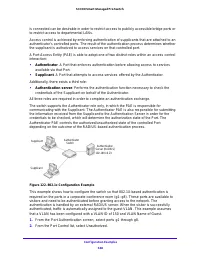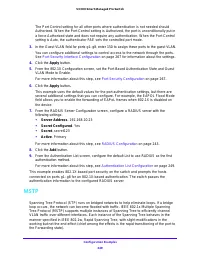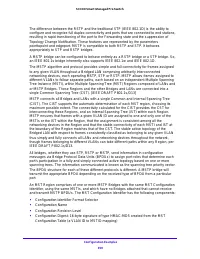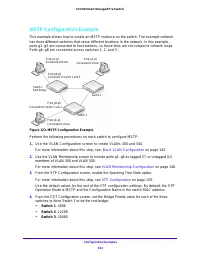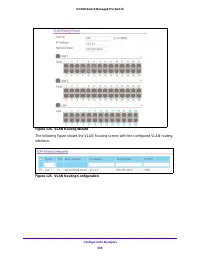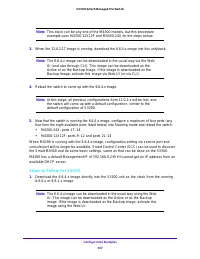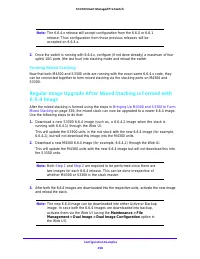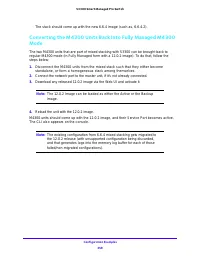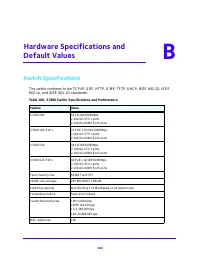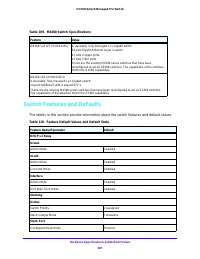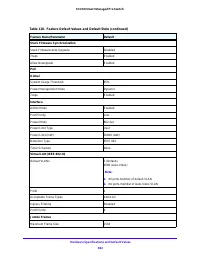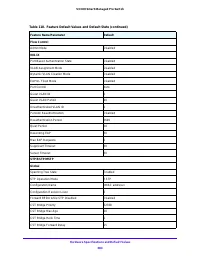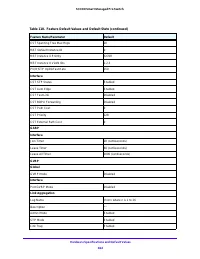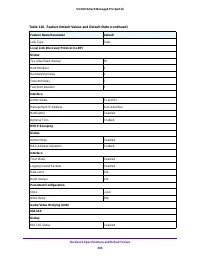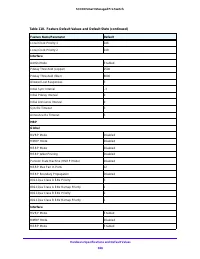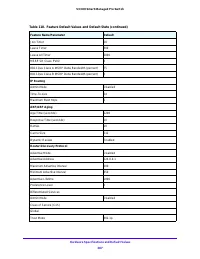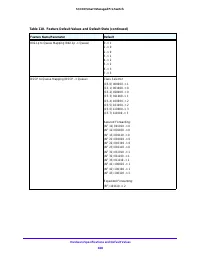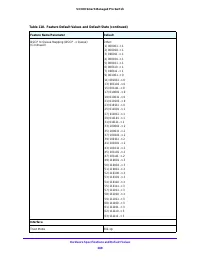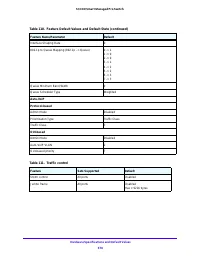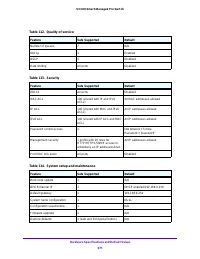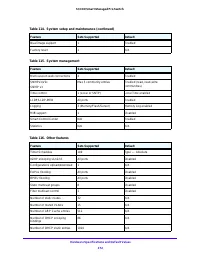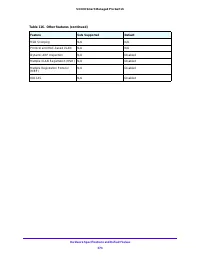Коммутаторы NETGEAR S3300-28X (GS728TX) 24x1GE - инструкция пользователя по применению, эксплуатации и установке на русском языке. Мы надеемся, она поможет вам решить возникшие у вас вопросы при эксплуатации техники.
Если остались вопросы, задайте их в комментариях после инструкции.
"Загружаем инструкцию", означает, что нужно подождать пока файл загрузится и можно будет его читать онлайн. Некоторые инструкции очень большие и время их появления зависит от вашей скорости интернета.

Configuring Switching
140
S3300 Smart Managed Pro Switch
•
LAG Name
. Specify the name you want assigned to the LAG. You can enter any
string of up to 15 alphanumeric characters. A valid name has to be specified in order
to create the LAG
•
Description
. Specify the description string to be attached to a LAG. It can be up to 64
characters in length.
•
Admin Mode
. Select Enable or Disable from the list. When the LAG (port channel) is
disabled, no traffic will flow and LAGPDUs will be dropped, but the links that form the
LAG (port channel) will not be released. Disabled indicates that interface was set in
diagnostic disabled state by the Auto Recovery feature. The factory default is Enable.
•
Hash Mode
. This Mode selects the load-balancing mode used on a port-channel
(LAG). Traffic is balanced on a port-channel (LAG) by selecting one of the links in the
channel over which to transmit specific packets. The link is selected by creating a
binary pattern from selected fields in a packet, and associating that pattern with a
particular link.
-
Src MAC,VLAN,EType,incoming port — Source MAC, VLAN, EtherType, and
incoming port associated with the packet.
-
Dest MAC,VLAN,EType,incoming port — Destination MAC, VLAN, EtherType, and
incoming port associated with the packet.
-
Src/Dest MAC,VLAN,EType,incoming port — Source/Destination MAC, VLAN,
EtherType, and incoming port associated with the packet.
-
Src IP and Src TCP/UDP Port Fields — Source IP and Source TCP/UDP fields of
the packet.
-
Dest IP and Dest TCP/UDP Port Fields — Destination IP and Destination
TCP/UDP Port fields of the packet.
-
Src/Dest IP and TCP/UDP Port Fields — Source/Destination IP and
source/destination TCP/UDP Port fields of the packet.
-
Enhanced hashing mode — Dynamic selections of fields based on packet flow. For
L2 packets Source and Destination MAC address, for IP packets, Source IP,
Destination IP address, TCP/UDP ports are used.
•
STP Mode
. Select the Spanning Tree Protocol administrative mode associated with
the LAG.
•
Link Trap
. Specify whether you want to have a trap sent when link status changes.
The factory default is Disable, which will cause the trap to be sent.
•
LAG Type
. Specify whether the LAG is configured as a static or LACP port.
-
Static — Disables Link Aggregation Control Protocol (LACP). The port does not
transmit or process received LAGPDUs, for example the member ports do not
transmit LAGPDUs and all the LAGPDUs it can receive are dropped. The LAG is
configured manually. The default is Static.
-
LACP — Enables Link Aggregation Control Protocol (LACP) on the selected LAG.
The LAG is configured automatically.
•
Local Preference Mode
. Enable or disable the LAG interface’s Local Preference
mode. Local preference is one of the properties of a LAG interface which is intended
for a Stacking environment. This is useful when the LAG is formed with ports from
Характеристики
Остались вопросы?Не нашли свой ответ в руководстве или возникли другие проблемы? Задайте свой вопрос в форме ниже с подробным описанием вашей ситуации, чтобы другие люди и специалисты смогли дать на него ответ. Если вы знаете как решить проблему другого человека, пожалуйста, подскажите ему :)





















































































































































































































































